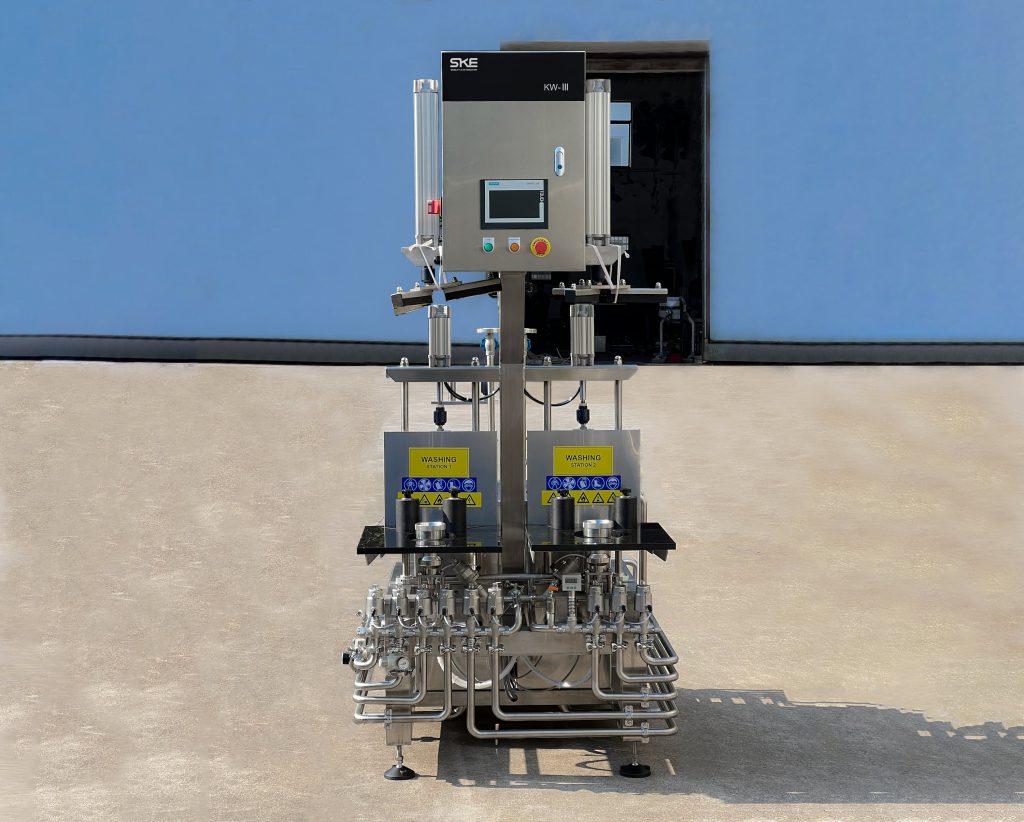Introduction

In the realm of manufacturing, the efficiency and precision of liquid filling processes play a pivotal role in maintaining product quality, optimizing production costs, and meeting consumer demands. Among the various tools and technologies available, liquid filling machines stand out as indispensable assets for industries ranging from pharmaceuticals to food and beverage. This blog delves into the multifaceted role of liquid filling machines, their types, functionalities, and significance in modern manufacturing processes.
Understanding Liquid Filling Machines
Liquid filling machines are automated devices designed to accurately dispense liquids into containers, vials, bottles, or other packaging formats. They offer precise control over filling volumes, minimizing wastage and ensuring consistency in product quality. These machines cater to a diverse array of industries, including pharmaceuticals, cosmetics, chemicals, and food and beverage.
Types of Liquid Filling Machines
Liquid filling machines are essential equipment in various manufacturing industries, offering precise and efficient filling solutions for a wide range of liquid products. These machines come in various types, each tailored to specific manufacturing requirements and the nature of the liquids being dispensed. Let’s delve deeper into some common types:
Piston Fillers
Piston fillers, also known as piston depositors, are versatile machines suitable for filling viscous liquids such as creams, gels, pastes, and sauces. They operate on the principle of a piston moving within a cylinder to draw and dispense precise volumes of liquid. Piston fillers are ideal for applications requiring high accuracy and consistency in fill volumes. They offer adjustable fill speeds and can handle a wide range of container sizes and shapes.
Advantages:
- High accuracy and precision in filling volumes.
- Suitable for a wide range of viscosity levels.
- Adjustable fill speeds for varying production needs.
- Compatible with different container types.
Gravity Fillers
Gravity fillers rely on the gravitational force to fill containers with liquid products. These machines feature a reservoir or tank positioned above the filling nozzles, allowing the liquid to flow into the containers under gravity. Gravity fillers are commonly used for filling beverages, oils, and other free-flowing liquids. They offer relatively high-speed filling rates and are well-suited for applications where foaming or splashing is minimal.
Advantages:
- High-speed filling rates.
- Simple operation and minimal maintenance.
- Suitable for filling free-flowing liquids.
- Cost-effective solution for medium to high-volume production.
Volumetric Fillers
Volumetric fillers, also known as piston fillers, utilize positive displacement principles to dispense precise volumes of liquid into containers. These machines feature volumetric cylinders or chambers that measure and dispense fixed volumes of liquid with each cycle. Volumetric fillers are commonly used for filling liquids with consistent viscosity levels, such as lotions, shampoos, and detergents. They offer excellent accuracy and repeatability in fill volumes.
Advantages:
- Precise and consistent fill volumes.
- Suitable for filling liquids with consistent viscosity.
- Minimal product waste and high efficiency.
- Can handle a wide range of container sizes.
Rotary Fillers
Rotary fillers are advanced filling machines capable of high-speed operation and handling multiple filling stations simultaneously. These machines feature rotating platforms or carousels with multiple filling heads, allowing for simultaneous filling of multiple containers. Rotary fillers are ideal for high-volume production lines requiring fast and efficient filling of liquid products such as bottled water, juices, and dairy products. They offer exceptional throughput rates and automation capabilities.
Advantages:
- High-speed filling rates for large-scale production.
- Simultaneous filling of multiple containers.
- Automated operation with minimal manual intervention.
- Versatile and adaptable to different container types and sizes.
Key Considerations in Selecting Liquid Filling Machines
When choosing a liquid filling machine for a specific application, manufacturers need to consider several factors. These include the viscosity and chemical properties of the liquid, desired fill volume and accuracy, production capacity, available space, and budget constraints. Conducting thorough research and consulting with industry experts can help in making informed decisions.
Applications and Benefits

Liquid filling machines find applications across a spectrum of industries and product categories. From bottling medications and cosmetics to packaging beverages and household cleaners, these machines streamline production processes, enhance product presentation, and improve overall operational efficiency. Their benefits include reduced labor costs, minimized product waste, and compliance with regulatory standards.
| Type of Liquid Filling Machine | Application |
|---|---|
| Piston Fillers | Pharmaceutical syrups, viscous liquids |
| Gravity Fillers | Beverages, oils, sauces |
| Volumetric Fillers | Cosmetics, shampoos, detergents |
| Rotary Fillers | Bottled water, juices, dairy products |
Conclusion
Liquid filling machines represent a cornerstone of modern manufacturing, enabling businesses to achieve higher levels of efficiency, accuracy, and product consistency. By investing in the right type of filling equipment and leveraging advanced technologies, manufacturers can streamline their operations, reduce costs, and stay competitive in today’s dynamic marketplace.
FAQ
Q: Can liquid filling machines handle different types of liquids?
A: Yes, liquid filling machines are designed to accommodate a wide range of liquids, including those with varying viscosities and chemical properties. However, it’s essential to select the appropriate type of filling machine based on the specific characteristics of the liquid being dispensed.
Q: How can liquid filling machines improve production efficiency?
A: Liquid filling machines automate the filling process, significantly reducing the need for manual labor and minimizing errors. They also offer precise control over fill volumes, leading to less product wastage and higher throughput rates.
Q: Are liquid filling machines easy to maintain?
A: With regular maintenance and proper cleaning protocols, liquid filling machines can remain highly reliable and efficient over their operational lifespan. Manufacturers often provide comprehensive maintenance guidelines and support services to ensure optimal machine performance.
In conclusion, liquid filling machines play a crucial role in modern manufacturing, offering precision, efficiency, and versatility across various industries. By understanding their types, applications, and key considerations, businesses can harness the full potential of these machines to enhance their production processes and deliver high-quality products to consumers.

